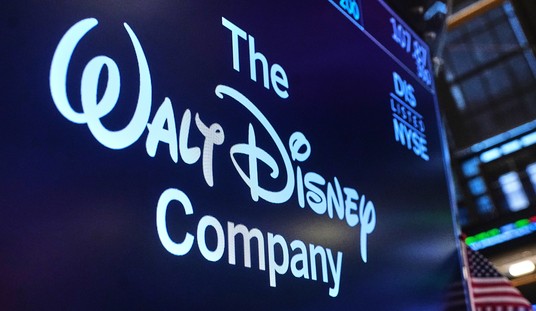If you’re wondering how Mitt Romney could have lost the 2012 presidential election to President Obama after securing a five-point advantage among independent voters, a good portion of the answer might be found in Catalist, a centralized database that Democrats are using to turn out the vote.
In an article at PJ Media, former Justice Department Voting Section attorney J. Christian Adams compares the astoundingly comprehensive leftwing data machine to the cybernetic organism in Star Trek: First Contact. In the 1996 film, the all-consuming Borg forces other species into its collective “hive” mind of knowledge.
“Every Borg unit can see what all the other units see,” Mr. Adams writes. “They share data and react in unison. Similarly, the data feeding the central Catalist database is coming from a wide swath of sources. Public records, pollsters, campaigns, non-profits, activist groups, unions, parties, commercial data. … For example, when an environmental group does neighborhood door knocking for cash, the results of those contacts are fed into Catalist.”
This allows Democratic Party activists to drill down to the party’s base and send staff and volunteers out to make sure that likely Democratic voters – including those who have not voted in years – register and either vote early, mail in their ballots or show up at the polls on Election Day.
Catalist, which was founded in 2006 with seed money from billionaire leftist George Soros and whose president is former Clinton deputy chief of staff Harold Ickes, specializes in “micro-targeting.”
Two Obama for America 20-somethings with clipboards came to our door in northern Virginia in 2008 and asked to speak to our grown children, who, their records showed, might still be living with us. They weren’t, but they weren’t far out of the nest, either. We were stunned at the specificity of the inquiry. Catalist has data on every single voter in America. They know what you eat for breakfast. Well, maybe not. But their reach is formidable.
Recommended
“The bottom line is that they don’t need the independents anymore, so they don’t need to moderate their message,” Mr. Adams told me over the phone. “This is why Obama can keep veering sharply left without fear of losing elections. As long as they turn out their base, that’s all they need.”
In 2012, Obama got less of the independent vote than in 2008 in eight of the nine battleground states: Colorado, Florida, Iowa, Nevada, New Hampshire, Ohio, Virginia and Wisconsin. He won more independents in one battleground state, North Carolina --the only swing state he lost.
“Capturing independents by five points gave Romney a 1.5 percent advantage in the overall vote,” a Slate analysis explains, “not nearly enough to overcome the 4.5 percent advantage Obama got from the predominance of Democratic voters, who outnumbered Republicans 38 to 32 percent.”
There is nothing on the Republican side to rival Catalist. Several GOP databanks exist, but they don’t share data the way Catalist does. Democrats “have created a collaborative and fully integrated system that allows them to ignore the middle while extracting unprecedented turnout from a micro-targeted, ideologically far-left base,” Mr. Adams writes.
GOP consultants still think an expensive air war with TV ads will carry the day, even as Catalist-informed troops are overrunning the battleground.
In a recent Wall Street Journal column, American Crossroads founder Karl Rove noted that Democratic U.S. Senate candidates and groups have already spent $109 million to run or place TV ads, contrasted with $85 million spent on behalf of Republican candidates. He advised Republican donors to “open their wallets,” and, almost as an afterthought at the end of the column, “if they live in a battleground state, they clear their calendars to volunteer to identify and get out the vote.”
Mr. Adams, who runs the Virginia-based Election Law Center and is a Policy Board member of the American Civil Rights Union, discovered the magnitude of Catalist last year during election integrity litigation brought against the State of Indiana. One of the consultants was Yale Political Science Prof. Eitan D. Hersh, author of a Harvard dissertation on Catalist. Upon reading Hersh’s paper, Adams concluded that the game had changed exponentially, and that Republicans were sending the equivalent of horses against tanks.
Neither party can afford to utterly alienate independent voters, who comprise upwards of 20 percent of the electorate. The GOP traditionally has won elections by attracting a highly motivated coalition of fiscal, social and national security conservatives, along with some moderates and independents.
But lukewarm candidates such as John McCain and Mitt Romney did not motivate a critical component of the Republican base – evangelical Christians – to turn out in sufficient numbers to volunteer their time, much less vote.
It’s not “the economy, stupid.” It’s which party turns out its base.
It will not be enough for the GOP to trust that the nation is fed up with Obama and his enablers in Congress. They must find ways to excite their conservative base, and to work together to create the kind of centralized data powerhouse that will keep fewer people from being sucked into the Borg.

























Join the conversation as a VIP Member